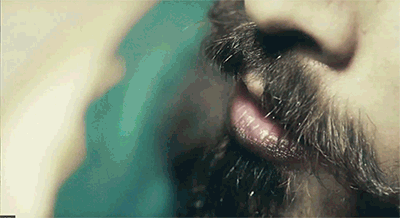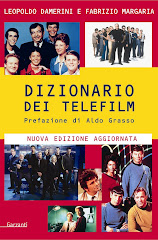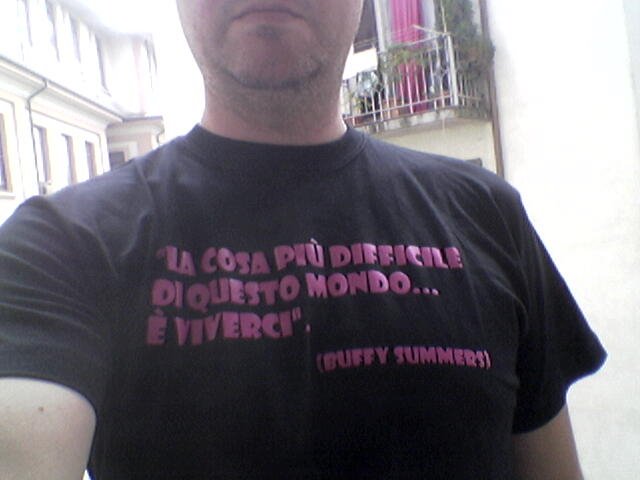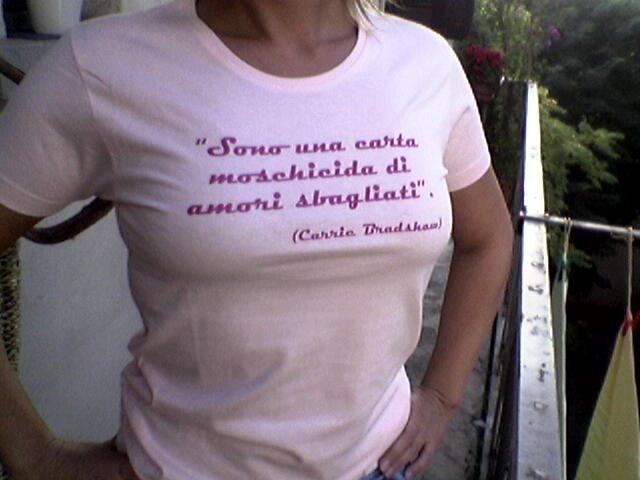NEWS - RIP, non ci sono più i gay effeminati di una volta...
Post di Nico Lang per PolicyMic
"A couple of years ago I sat in the audience for a panel
discussion on queer representation in entertainment; the presentation
included a breezy tour through the gay history of the media, complete
with Powerpoint slides of Rosie, Ellen and old People magazines from when you needed to be on the cover of something to come out. The overview was greeted warmly, until we got to Will and Grace,
where one of the show's characters, Jack McFarland, proved a sticking
point. Jack, a sassy sidekick whose flamboyance towed the line between
camp and parody, has long been a lightning rod of discussion in the
community. You could feel that discomfort in the room.
Our tour guide diffused the tension by reminding the
mostly-male audience that Jack might be a stereotype, but many of us
know a Jack in real life. The audience laughed with delight and
recognition. They nodded to friends as if to say, "Oh, yes. That's
true." What he didn't say is that many of us are Jacks, but I wondered how many people would laugh at that statement.
I thought of this moment after NBC announced that the network would be pulling Sean Saves the World, the freshman sitcom starring Sean Hayes, who played Jack on Will and Grace. For those who haven't seen the show (read: all of you), Sean Saves the World
was about a father forced to take sole guardianship of his estranged
(yet adorable!) daughter after her mother abandoned her. The show was
NBC's attempt to relive its glory days by borrowing from what worked in
the '90s, with Hayes playing nearly the same character, a little older
and wiser, but with all the trademark pitfalls. Even the stilted laugh
track made it sound like the laughter was echoing in from 15 years ago.
But in getting (rightly) cancelled by NBC, audiences weren't just
leaving '90s sitcoms behind. They were leaving behind the Jack
McFarlands, a relic of the Queer as Folk era of gay TV, when a show like Queer as Folk (for
all its whitewashed issues) could give us three effeminate gays in its
lead cast: Emmett, Ted and Justin. The recent television movement has
been a push toward post-gay representation, creating male characters who
just so happen to be gay. On the critically lauded Brooklyn Nine-Nine,
that's the entire point of Andre Braugher's Captain Holt. His sexuality
is as inscrutable as the rest of his persona, a hard-ass who has
learned to blend in to survive in a homophobic workforce. The recent new
HBO addition Looking was celebrated for the same thing.
Although many critics chided it for being dull (which it is), defenders
of the show found it liberating that gay characters got to be boring on television just like everyone else.
However, there's a certain type of character that gets the
privilege to be post-gay, guys whose sexuality doesn't stand out in the
same way that Jack's did. In order to get on television today, gay
characters are butching it up, becoming like Captain Holt to prove they
can hang with the boys, camouflaged with masculinity. Looking's characters are all fit hipster bros who call each other "dude" a lot. On the recently departed Happy Endings,
the schlubby, hairy Max acted as a deconstruction of gay stereotypes.
It was a running joke that Max was "less gay" than the show's straight
dudes, much like gay characters on Nashville and GCB. This might be what it takes to fit in, but it looks awfully heteronormative.
 Even recent shows that depict effeminate male characters
use them primarily as the butt of the joke, a Lucy character who is
always causing trouble. They act in counterpoint to a straighter man,
who is seen as the voice of reason. The now-cancelled Ryan Murphy sitcom
The New Normal provided Bryan — a shallow, judgmental
television executive — primarily as a counterpoint to his angelically
understanding partner David, a doctor who watches football and has no
other character traits. David's role is "The Problem Solver." On Modern Family,
Mitchell and Cameron have a similar dynamic, but Mitch seems to
increasingly resent Cam for his effeminate tomfoolery. Their growing
animosity has led many viewers to wonder if they secretly hate each other.
Even recent shows that depict effeminate male characters
use them primarily as the butt of the joke, a Lucy character who is
always causing trouble. They act in counterpoint to a straighter man,
who is seen as the voice of reason. The now-cancelled Ryan Murphy sitcom
The New Normal provided Bryan — a shallow, judgmental
television executive — primarily as a counterpoint to his angelically
understanding partner David, a doctor who watches football and has no
other character traits. David's role is "The Problem Solver." On Modern Family,
Mitchell and Cameron have a similar dynamic, but Mitch seems to
increasingly resent Cam for his effeminate tomfoolery. Their growing
animosity has led many viewers to wonder if they secretly hate each other.
More than Mitchell, it's the community that has a
complicated relationship with flamboyancy, much like the guys that I sat
on the aforementioned panel with. It's a lot easier to pretend the
queens don't exist than try to represent them, or we'd have to admit we
have something in common. I remember that my mother once told me how
much I reminded her of Jack and I remember how much it bothered me. I
never stopped to ask myself why.
 In being the newest gay show on TV, many will look to Looking
to fix the problems surrounding gay representation and fill in the gaps
in our media spectrum. Such is the inherent burden of representing a
community, but we need to recognize why those cracks exist in the first
place and why certain character types might push our buttons when it
comes to masculinity and internalized homophobia. Fixing one TV show
won't solve a problem that's bigger than HBO. With True Blood’s Lafayette and Glee's Kurt Hummel on shows that are on their last legs, our effeminate males are quickly becoming an endangered species.
In being the newest gay show on TV, many will look to Looking
to fix the problems surrounding gay representation and fill in the gaps
in our media spectrum. Such is the inherent burden of representing a
community, but we need to recognize why those cracks exist in the first
place and why certain character types might push our buttons when it
comes to masculinity and internalized homophobia. Fixing one TV show
won't solve a problem that's bigger than HBO. With True Blood’s Lafayette and Glee's Kurt Hummel on shows that are on their last legs, our effeminate males are quickly becoming an endangered species.
On Girls, Lena Dunham's Hannah recently mourned the death of
her complicated and quick-witted editor, David Pressler-Goings, played
by the ever-androgynous John Cameron Mitchell. As David ascended to TV
heaven to be with Sean Hayes, Hannah recalled that he had been her
champion, the only one who believed in her work. TVs Davids, Jacks and
Emmetts need champions too. They might not be represented on the air
anymore, but it doesn't mean they aren't still here in real life and
wondering what happened to their television counterparts".
















.jpg)
















Nessun commento:
Posta un commento